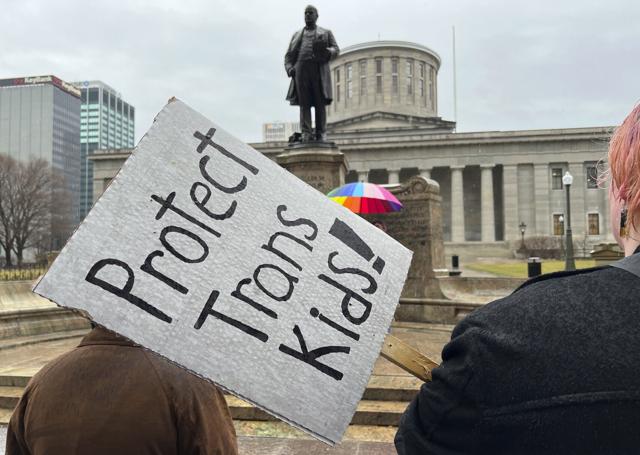In a growing trend, six Republican-led states are joining the fray to challenge the Biden administration’s recent expansion of Title IX rules aimed at protecting LGBTQ+ students on college campuses. This move adds fuel to an already heated debate over the extent of federal authority and the interpretation of anti-discrimination laws.
The Title IX anti-discrimination law, originally enacted in 1972, prohibits sex-based discrimination in educational programs or activities receiving federal financial assistance. Over the years, its scope has expanded to cover issues such as sexual harassment and assault. In recent years, the interpretation of Title IX has broadened to include protections for LGBTQ+ individuals, a move that has sparked contention among conservatives.
The Biden administration’s latest move to strengthen Title IX protections for LGBTQ+ students has faced swift opposition from Republican-led states. These states argue that the new rules exceed the president’s authority and encroach upon states’ rights. They contend that the federal government should not dictate policies related to gender identity and sexual orientation, asserting that such matters should be left to individual states to decide.
Critics of the administration’s actions fear that the expanded Title IX rules will infringe upon the rights of religious institutions and create conflicts with deeply held beliefs. They argue that the government should not compel religiously affiliated colleges and universities to adopt policies that contradict their religious teachings.
Proponents of the expanded Title IX protections argue that they are necessary to ensure equal treatment and safety for LGBTQ+ students on college campuses. They emphasize the importance of creating inclusive environments where all students feel respected and supported, regardless of their sexual orientation or gender identity. They contend that these protections are essential for combating discrimination and promoting diversity and inclusion in higher education.
The legal battle over Title IX rules is likely to have far-reaching implications, not only for college campuses but also for the broader landscape of LGBTQ+ rights in the United States. As the debate unfolds, it underscores the ongoing tensions between federal authority and states’ rights, as well as the complex intersection of law, politics, and social justice.
In the midst of this contentious debate, it is crucial to prioritize the well-being and safety of all students, including those who identify as LGBTQ+. Finding common ground and working towards solutions that uphold both individual rights and institutional integrity will be essential in navigating this complex and deeply polarizing issue.







Leave a Comment